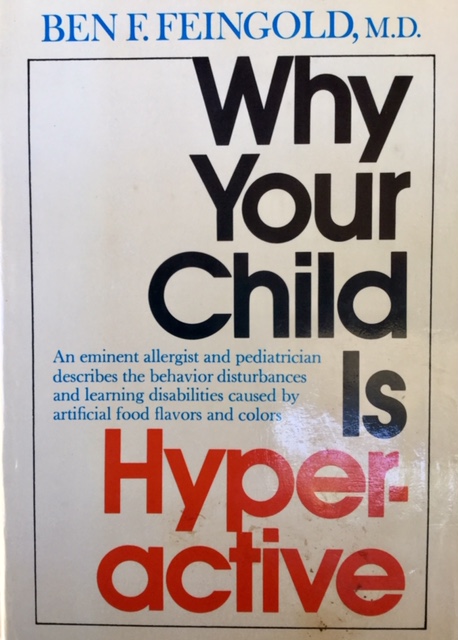
If you look on the internet you will see that the kids whose behaviour and hyperactivity improve on the Feingold diet are those where there is some connection with their genes. This is great news as it recognises that the diet does work for some kids, and that where improvement happens it is connected to some factor in their family.
In 2010, an FDA panel released a report based on many studies of the Feingold diet. The report found that artificial food colours, flavours, or preservatives likely only affect kids who can’t tolerate them, probably because of their genes. And a 2013 review published in the American Journal of Psychiatry showed that kids who happen to be sensitive to certain foods may show improved ADHD symptoms if they avoid them. They further say that while there have been several studies looking at the link between food and symptoms, there’s no proof that certain foods or ingredients cause ADHD, dyslexia, or learning and behaviour problems.
So we have reached a good point where it can be said that some kids do react to some additives and some foods but the discussion that says that all react or none react is gone.
What my research found that was interesting was the part about the likelihood of reacting to food running in families. The first idea was researchers reporting those who reacted where more likely to be in families with allergies. Think about this. Feingold was an allergist so all the children he saw whose behaviour changed with diet were allergic. But doctors who worked in mental health clinics were working with non-allergic children so it makes sense that they saw more non-diet responders.
What I gradually found was new information. I was amazed that the diet-responder children were supersensitive in many ways. They would completely refuse food that they did not like the taste, or texture or temperature of, each being fussy in their own way. They often hated particular smells or were particularly sensitive to them. I would hear stories of children who said “Smoke, Mummy, smoke” and when the mum investigated they found a heater overheating in a distant room.
Over years I developed the Family Sensitivity History where families could write out all that they noticed in their children, in themselves as parents, in the child’s brothers and sisters and in the grandparents and aunts and uncles. Again, different families reported different sensitivities even in different members. If Grandma gets headaches from chocolate, uncle had eczema as an infant and chocolate made it worse, then chocolate is suspect in the child with ADHD or ASD. One mother reported no problems during breast feeding. However she had wisely excluded from her diet everything that had affected the older brother in his infancy.
What foods or chemicals do family members react to? Sometimes different ones are noted in different family members. Sometimes the same food or chemical is a problem to a few family members. The important diet detective idea is that any suspect food or chemical that produces one symptom in one family member may cause the same or different symptoms in other family members. You should consider all these family sensitivities in the family person investigating diet. As more detail was included the Family Sensitivity History included the wide variety of symptoms members had, as well as all the foods, additives, smells and any other factor they noticed causing a change in behaviour, or in any symptoms that family members had. You can read about it in the Articles section http://foodintolerancepro.com/category/food-intolerance/the-family-sensitivity-history/ Note that the idea of the sensitivity of family members is important. There is even more detail in the book that describes how to find the diet that helps your ADHD or ASD child: Are You Food Sensitive? which describes the updated Feingold Diet. It is available from https://www.amazon.com/Are-You-Food-Sensitive-investigate-ebook/dp/B00J7PC5VQ or from my website at http://foodintolerancepro.com/buy-food-sensitivity-products/
You can follow up the published comment at:https://www.webmd.com/add-adhd/childhood-adhd/what-is-the-feingold-diet in the 2013A J of Psych – kids may improve if they avoid additives
Joan I have been examining my diet and reactions for some time now as you know and I find the congestion in my throat and neck area quite bad when I have had too much wine or coffee and that lymphatic drainage massage seems to assist. Do you have any thoughts or insights on the role of the lymphatic system and indeed the vagus nerve and parasympathetic system .
kind regards
Fiona
Dear Fiona, Thank you for letting others know of your particular reactions. Everyone is different. Among food sensitive people those symptoms often are connected to reflux. And they comment that massaging the area helps with that symptom. Your questions are very interesting. They are the questions you and others may ask doctors in the many different branches of medicine you people with high BP symptoms should ask as they should know how the circulation system interacts with the lymphatic system. Someone may find a doctor who makes a useful connection that helps. I suspect diet will still have a role for those who are food sensitive, though it would be great it is was reduced a bit! All the best with research by everyone! Joan